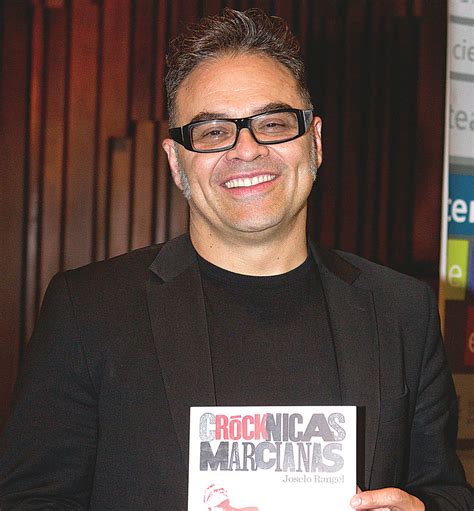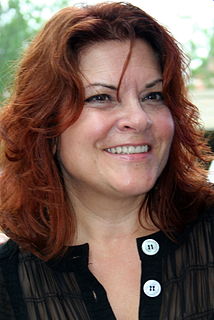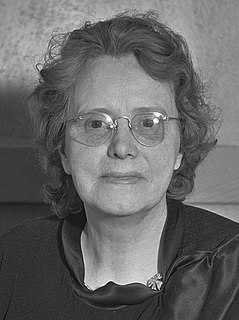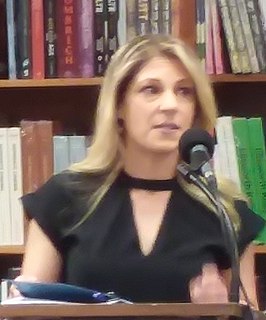A Quote by Ursula K. Le Guin
We read books to find out who we are. What other people, real or imaginary, do and think and feel... is an essential guide to our understanding of what we ourselves are and may become.
Related Quotes
One might think this means that imaginary numbers are just a mathematical game having nothing to do with the real world. From the viewpoint of positivist philosophy, however, one cannot determine what is real. All one can do is find which mathematical models describe the universe we live in. It turns out that a mathematical model involving imaginary time predicts not only effects we have already observed but also effects we have not been able to measure yet nevertheless believe in for other reasons. So what is real and what is imaginary? Is the distinction just in our minds?
We don't think of ourselves in Cafe Tacvba as representatives. When we go and make new material, we feel that our creations are more authentic if we think of ourselves. We don't say, "Let's be the representatives and show the moment that our society is in." But when it comes to performing and we visit other countries, like New York, many people approach us, people who are outside of their own country, and we become a referent. Our shows become this sort of ritual, and our performances become that moment of identity.
What is important is to realize that whether we understand fully who we are or what will happen when we die, it's our purpose to grow as human beings, to look within ourselves, to find and build upon that source of peace and understanding and strength that is our individual self. And then to reach out to others with love and acceptance and patient guidance in the hope of what we may become together.
Pride... is a very common failing, I believe. By all that I have ever read, I am convinced that it is very common indeed; that human nature is particularly prone to it, and that there are very few of us who do not cherish a feeling of self-complacency on the score of some quality or the other, real or imaginary. Vanity and pride are different things, though the words are often used synonymously. A person may be proud without being vain. Pride relates more to our opinion of ourselves, vanity to what we would have others think of us.
Many of us regard ourselves as mildly liberal or centrist politically, voice fairly pleasant sentiments about our poor children, contribute money to send poor kids to summer camp, feel benevolent. We're not nazis; we're nice people. We read sophisticated books. We go to church. We go to synagogue. Meanwhile, we put other people's children into an economic and environmental death zone. We make it hard for them to get out. We strip the place bare of amenities. And we sit back and say to ourselves, "Well, I hope that they don't kill each other off. But if they do, it's not my fault.
It is only in the giving of ourselves to others that we truly live — only with the meeting of our minds — thine and mine — do we become conscious of the divine spark each of us shares — only in sharing in our daily contacts, one with another, in our mutual hopes and fears do we find real peace. The human contribution is the essential ingredient.
The importance of the development of the emotional body is hardly recognized today. We are pretty much left to our own devices to come to full adulthood, whether man or woman. Our elders may have become so denatured themselves from a lack of such nurturance that there is no longer a collective knowledge of how to guide the awakening emotional vitality and authenticity of our young people, our children. Mindfulness may contribute to a reawakening of this ancient wisdom in ourselves and in others.
Religion is but a desperate attempt to find an escape from the truly dreadful situation in which we find ourselves. Here we are in this wholly fantastic universe with scarcely a clue as to whether our existence has any real significance. No wonder then that many people feel the need for some belief that gives them a sense of security, and no wonder that they become very angry with people like me who say that this is illusory.
In addition to pumping the blood of life within our bodies, we may think of the heart as a belief-to-matter translator. It converts the perceptions of our experiences, beliefs, and imagination into the coded language of waves that communicate with the world beyond our bodies. Perhaps this is what philosopher and poet John Mackenzie meant when he stated, "The distinction between what is real and what is imaginary is not one that can be finely maintained ... all existing thing are ... imaginary."
I would hate to be in high school now. Psychologists talk about the 'imaginary audience' that teens seem to feel they have around them and that makes them think they have to keep up their image all the time. Now with Facebook and MySpace and 24/7 online access, that imaginary audience has become real.






































